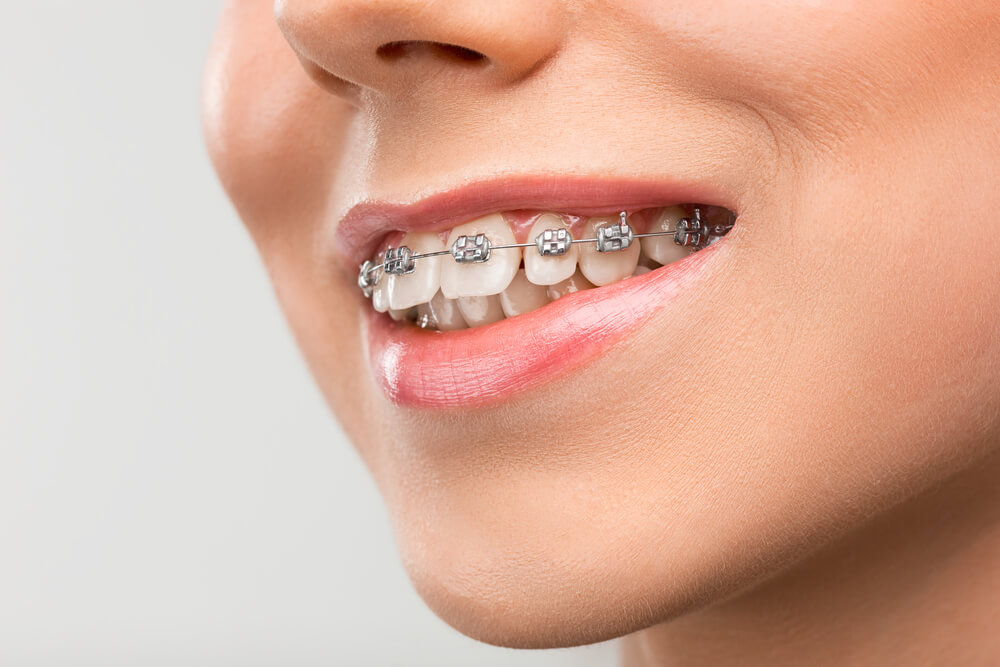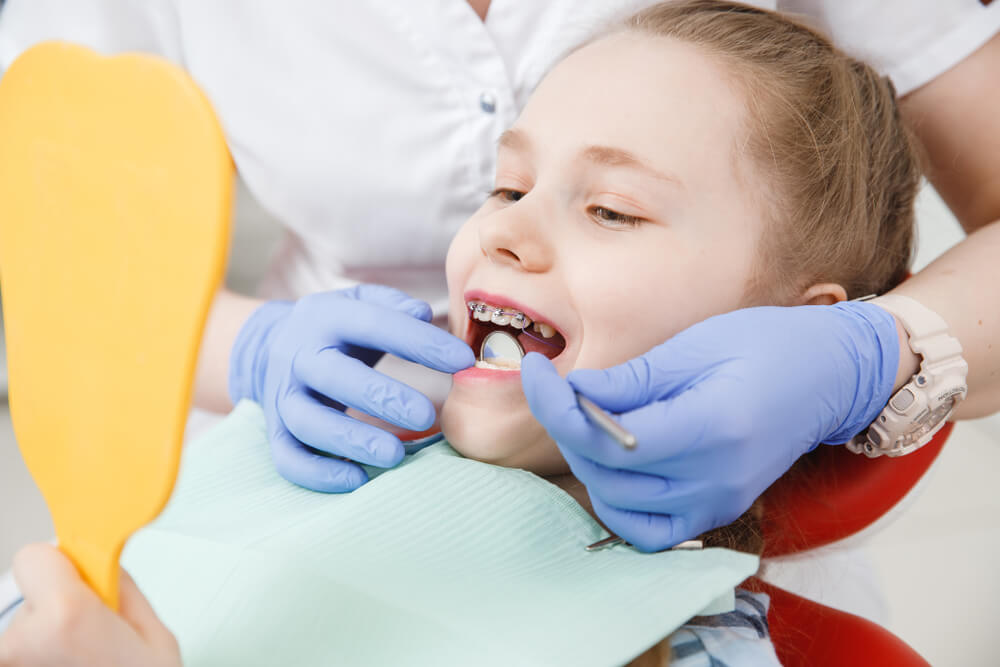An overbite can be caused by a number of factors, including genetics, tooth loss, and oral habits developed during childhood.
An overbite, a common orthodontic problem, can be caused by a few different factors. The issue occurs when the top front teeth extend beyond the bottom front teeth. In many cases, this may cause a minor issue without any uncomfortable symptoms, but in severe cases, the problem can contribute to a range of other concerns, including gum disease, tooth decay, and jaw pain. Read on to find out more about the possible causes and what can be done to resolve the issue.
What is an overbite, exactly?

An overbite is a type of malocclusion that causes an incorrect bite position in which the front teeth protrude over the jaw. Although malocclusion can cause cosmetic issues in some cases, it can also cause some uncomfortable symptoms.
An overbite differs from an underbite in that it affects the roof of the mouth. While an overbite causes the front teeth to protrude, an underbite is characterised by protruding bottom teeth. Both issues are types of malocclusions that affect the alignment of the jaw and the function of one’s bite.
What are the symptoms of an overbite?

One of the most common symptoms of an overbite is a bad bite. When the teeth are not properly aligned, their overall function is affected. In the case of an overbite, the top and bottom teeth do not line up — this often leads to difficulties with chewing and speaking, as well as jaw pain.
In some cases, individuals with an overbite experience jaw-related problems, which can lead to headaches, earaches, jaw pain and stiffness, and neck pain.
How does an overbite affect dental health?

If left untreated, an overbite can contribute to some dental issues over time. These include tooth decay and gum disease because misaligned teeth are prone to wear and tear, which can lead to dental erosion, infection, and receding gums.
An overbite can also contribute to temporomandibular joint disorders, which can cause difficulty with jaw movement as well as discomfort.
What causes an overbite?

An overbite can be caused by a number of possible factors. These include:
A small jaw
An overbite most often occurs when the lower jaw is particularly small. This is because an imbalance between the sizes of the upper and lower jaws can lead to jaw alignment problems. In some cases, the teeth in the lower jaw hit the roof of the mouth or the backs of the teeth — this can cause orthodontic and functional issues, as well as wear and tear on the teeth and general discomfort. The size of one’s jaw is generally a result of genetic factors, which can’t be prevented.
Childhood habits
Certain oral habits can also contribute to the development of an overbite. These habits, which typically occur during childhood, include thumb sucking, lip sucking, and tongue thrusting. These habits affect the alignment of the teeth, but the frequency and duration of the actions will affect the impact and severity of the overbite.
Tooth loss
When a child loses their baby teeth too early, their teeth can move out of alignment. Similarly, when one loses one or more teeth as an adult, tooth and jaw alignment issues can occur. In fact, a missing tooth in the lower jaw can cause similar issues if you have a particularly small lower jaw.
Strong jaw muscles
It is also possible for an overbite to develop in cases where one has particularly strong bite muscles. Overly developed and strong bite muscles are often the result of habits like clenching the jaw and grinding the teeth.
Genetic factors
Sometimes, orthodontic problems like overbites and crooked teeth are caused by genetic factors. In this case, one is born with the issue, and there is nothing that can be done to prevent it. Fortunately, it is possible to have your teeth straightened and any jaw alignment issues addressed by an orthodontist. Your orthodontist will let you know which treatment approach is most suitable, depending on your needs.
Can an overbite be treated?

The good news is that there are ways in which an overbite can be addressed. The treatment that is recommended will depend on a few factors, including the age at which treatment is performed as well as the severity of the issue.
Some of the possible treatments include braces, which can be used for both adults and children. In some cases, tooth extraction may be necessary before braces are placed. In very severe cases, jaw surgery may be an option.
Both braces and retainers are effective options for children as they work well on growing teeth. Sometimes, your dentist may recommend that baby teeth be extracted so that permanent teeth come in straighter.
Ideally, an overbite is best treated in childhood, which is why an early orthodontic assessment is highly beneficial. If, however, you never had the opportunity to have the issue resolved as a child, it’s never too late to seek orthodontic treatment. Your orthodontist will perform a thorough examination before recommending the course of action that best suits your needs.
How can we help?
At South East Orthodontics, we offer a comprehensive range of orthodontic solutions, so if you have an overbite that you would like resolved, we encourage you to come in and see us. We will examine your teeth and jaws and let you know which treatment is most appropriate for you.
Some of the treatments that are available for an overbite include traditional metal braces, ceramic braces, and lingual braces. These appliances work by applying pressure to the teeth, gradually shifting them, and adjusting the jaw over time.
In some cases, clear aligners may be recommended for the treatment of a mild to a moderate overbite. These also work by applying pressure to the teeth, gradually moving them throughout the course of treatment.
In more severe cases, where the jaw is misaligned, jaw surgery may be performed. During this procedure, the jaw will be moved into a better position and secured in place with small screws, plates, or wires.
If you would like to find out more about the ways in which an overbite can be treated, please don’t hesitate to get in touch — please contact us here or give us a call at 03 9330 0702.
To find out more about the full scope of services that we provide at South East Orthodontics, please have a look here.